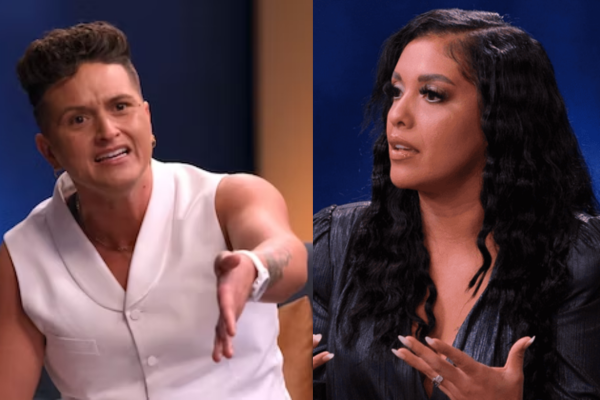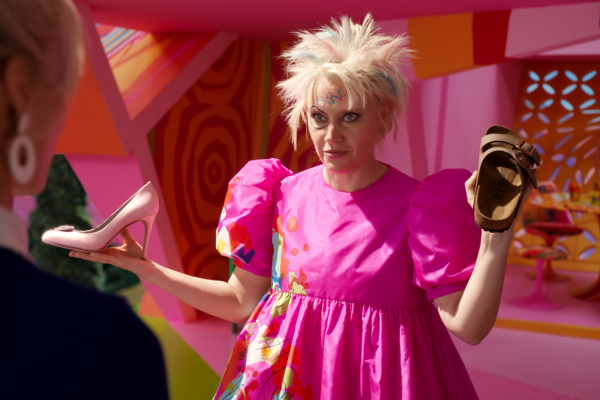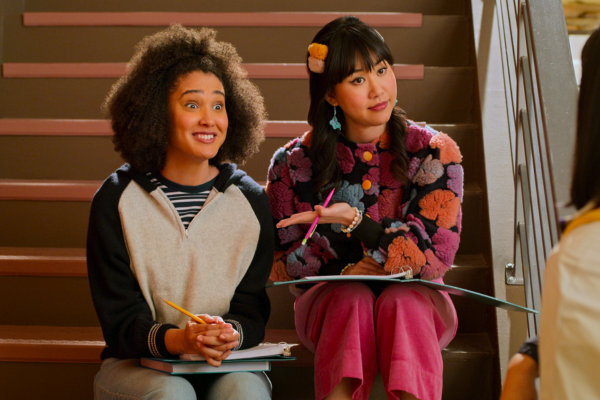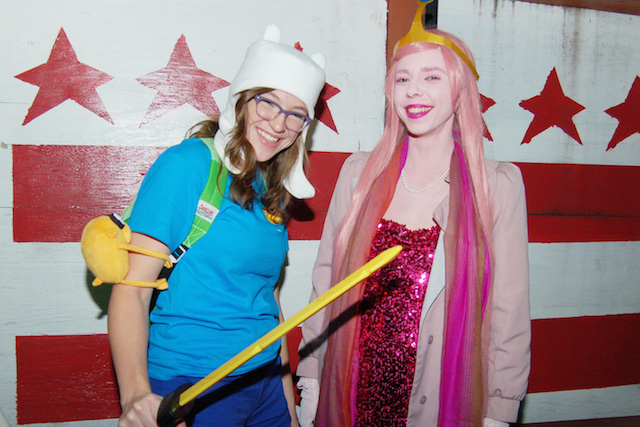
Photos: monstHER Halloween Party
November 4, 2014Lea DeLaria Owns Subway Preacher
November 4, 2014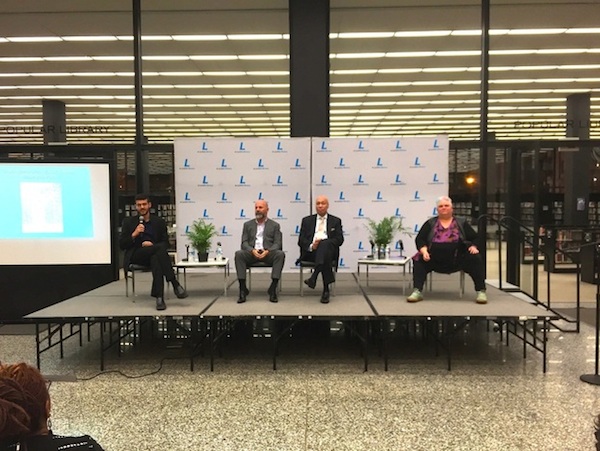
Moderator Mark Stern, Andrew Sullivan, Philip Pannell, and Lorraine Hutchins (Photo: navyyardproject)
Last week, I had the opportunity to attend a panel focused on the LGBTQ experience in the District of Columbia titled District of Change: LGBTQ Life in DC – Then and Now. Part of a larger series, this discussion featured moderator, Mark Joseph Stern of Slate, panelist Andrew Sullivan of The Daily Dish, longtime community activist Philip Pannell, and feminist author Loraine Hutchins. As the conversation evolved, the concept of what it meant to be queer in the District of Columbia narrowed and I walked away hearing almost exclusively about what it meant to be a cisgender gay man in the D.C. I was filled with questions and getting no real answers. Right then I decided if I live long enough to be an LGBTQ elder, I’ll need to keep in mind a few things:
1. Please don’t say LGBTQ when you really mean G, G ,G, B, and possibly L.
The queer umbrella is growing. However, this means the amount of work to be done to represent our community is also increasing. It’s not enough to show up queer — I’ll need to do my due diligence to learn about others and make sure as many of us are represented as possible.
2. YOUR experience as a queer person is not THE queer experience.
While the LGBTQ community is not a monolith, it is still extremely segregated. As such, it’s easy to feel your experience and the experience of like-minded people around you are representative of the queer community at large. This is not so. Accept this and move forward with that knowledge.
3. If you are only able to speak of the transgender community in terms of homicide or survival sex, don’t bring up the transgender community.
It’s important to shed light on the serious and often deadly ways the trans community is ignored, dismissed, and subjected to various forms of discrimination and maltreatment. However, it’s unfair to paint the transgender experience as one dimensional or as nothing more than a series of statistics pulled from the Department of Justice website. This is an incredibly diverse identity filled with a wildly diverse range of experience. Transgender people are professionals, siblings, partners, parents, scholars, but most importantly they are people.
4. Black queers are, in fact, also people.
This can be summed up by an anecdote shared by panelist Andrew Sullivan. Apparently, back in the, “early days of house music,” he attended a nightclub frequented by black gay men. He noticed immediately that he was one of the only white people there, yet the music was amazing. Perplexed by the general awesomeness of this establishment yet lack of whiteness, Sullivan explained his overarching thought: “This music is so great. Why is no one here?” This may come as a surprise but LGBTQ people have always been here, we’ve always been queer, but we aren’t always white — get used to it. A space does not have to be dominated by white queers in order to be a space for queer people.
5. Share the space or go home.
I recognize some of this is male privilege and some of this is just good old fashioned patriarchy. However, in a shared space of learning and sharing, people should never have to elbow their way into conversations — especially if those people are women. If you are unwilling to share the space with others then don’t be surprised if people are at best frustrated and at worst out the door.
As the LGBTQ community in D.C. is a topic fit for a thesis rather than a short conversation on a chilly D.C. night, I was not expecting to get an accurate description of the city’s current and past states. However, it was impossible to ignore the absence of lesbian and transgender people on the stage, as well as the general lack of diversity. It is my hope that our elders can understand it’s important to learn about others and make sure as many of their stories and experiences are passed on.



